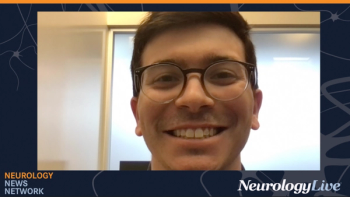
Neurology News Network for the week ending January 21, 2024. [WATCH TIME: 3 minutes]

Neurology News Network for the week ending January 21, 2024. [WATCH TIME: 3 minutes]
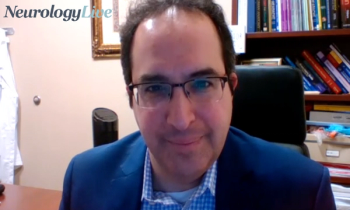
The director of the Hartford healthcare Headache Center in Connecticut shared his and colleagues' thoughts on potential therapies that expand management care options for patients with migraine. [WATCH TIME: 7 minutes]
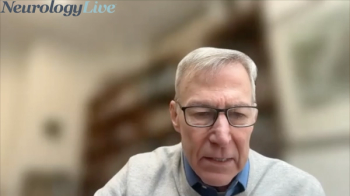
The director of NYU Langone’s Comprehensive Epilepsy Center discussed a recently published study that used videos to identify potential causes of sudden deaths in toddlers. [WATCH TIME: 4 minutes]
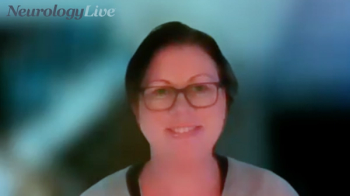
The head of Patient Engagement, Epilepsy and Rare Syndromes (Europe) at UCB Pharma discussed findings from a literature review presented at AES 2023 involving conversations about sudden unexpected death in epilepsy. [WATCH TIME: 4 minutes]
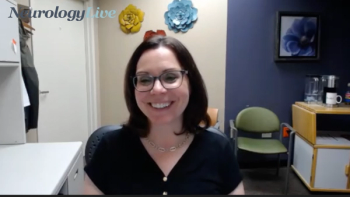
The medical director of the Inpatient Rehabilitation Unit at Ascension Genesys Hospital explored the various interventions for managing spasticity after stroke, from stretching exercises to surgical procedures. [WATCH TIME: 3 minutes]
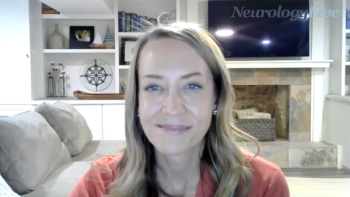
The system vice chair for the department of neurology at Allegheny Health Network talked about the growing evidence emphasizing the need for a more holistic approach to patient care in migraine. [WATCH TIME: 4 minutes]
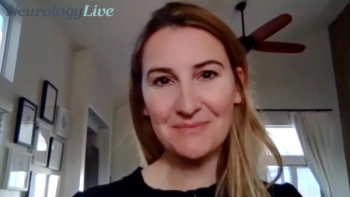
The clinical director of Parkinson & Movement Disorder Alliance shared her thoughts on potential therapies to increase management care options for patients with Parkinson disease. [WATCH TIME: 5 minutes]
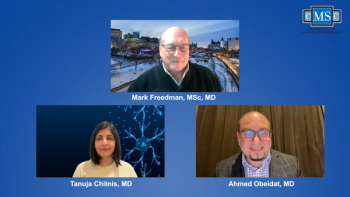
Ahmed Obeidat, MD, PhD, considers utility of biomarkers in MS diagnosis, but he also noted that diagnosis remains clinical.

Mark Freedman, MD, MSc, Tanuja Chitnis, MD, and Ahmed Obeidat, MD, PhD, discuss the role of biomarkers and the key areas in which they will be used in managing day-to-day decisions in patient management.
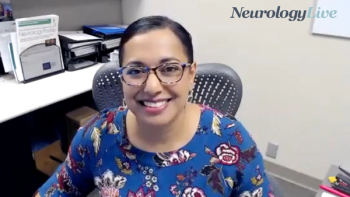
The associate professor in the department of neurology at Mayo Clinic College of Medicine talked about the importance of adopting a patient-centered approach in migraine treatment and the often overlooked impact of brain fog in patients with migraine. [WATCH TIME: 4 minutes]
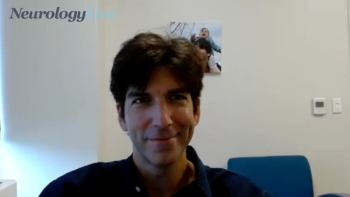
The chief medical research officer and head of research at Aviv Clinics talked about the anticipation of long-term results on a randomized controlled trial assessing hyperbaric oxygen therapy, a treatment for long COVID. [WATCH TIME: 5 minutes]
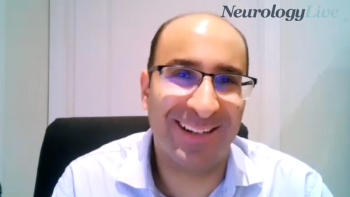
The associate professor, department of medicine, division of neurology, Institute of Medical Science, University of Toronto, discussed recent research that challenged the conventional definitions of sleep and how narcolepsy is often stigmatized. [WATCH TIME: 2 minutes]
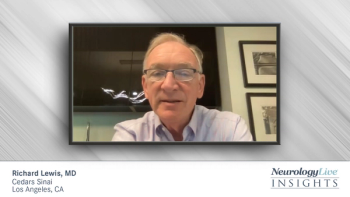
Expert neurologist Richard Lewis, MD, shares his personal clinical pearls on diagnosing CIDP.

Dr Lewis describes the various investigational therapies that are underway with the potential to change the current treatment landscape of CIDP.

Expert neurologist Dr Lewis discusses the effect CIDP can have on the quality of life of a patient with CIDP as well as the unmet needs of the disease.

Dr Lewis gives an overview of the current treatment landscape of CIPD, including response rates to available treatments.
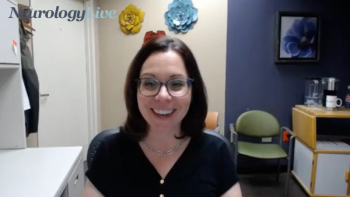
The medical director of the Inpatient Rehabilitation Unit at Ascension Genesis Hospital talked about the management of poststroke spasticity and highlighted the importance of awareness, education, and early intervention. [WATCH TIME: 5 minutes]
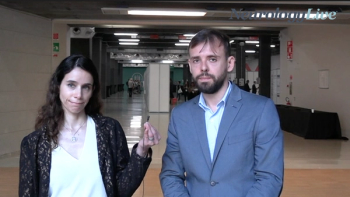
The neuroimmunologist at Clínica Alemana de Santiago and head of the University Center for Multiple Sclerosis at Ramos Mejía Hospital discussed Latin American efforts to understand neuromyelitis optica spectrum disorder during the COVID-19 pandemic. [WATCH TIME: 5 minutes]
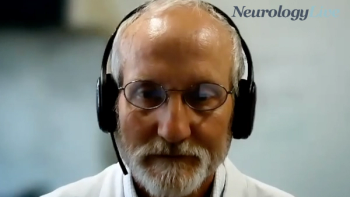
The professor in the department of neurology with McGovern Medical School at UTHealth Houston talked about findings from a recent study that investigated T cell specificity in the spinal fluid of patients with multiple sclerosis. [WATCH TIME: 10 minutes]
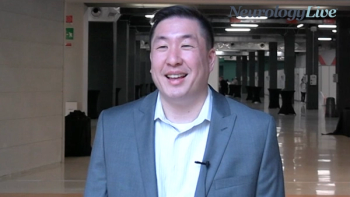
The associate professor of clinical neurology at University of California, Irvine School of Medicine talked about addressing the critical unmet needs in disability progression among patients with multiple sclerosis. [WATCH TIME: 3 minutes]

Expert neurologist Dr Lewis reviews the red flag symptoms of CIPD that should prompt a referral your patient.

Dr Lewis discusses diagnosis of CIDP, the broad differential diagnosis to keep in mind and common misdiagnosis.
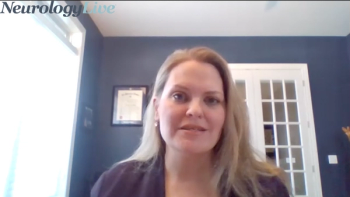
The vice president of medical and scientific relations at the Alzheimer’s Association discussed where the organization’s efforts are currently invested and the ways to continue momentum in the Alzheimer disease field. [WATCH TIME: 5 minutes]
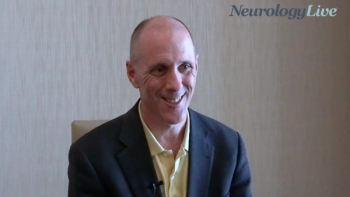
The professor and chair of neurology at Virginia Commonwealth University discussed how neurologists are urged to take organized action and provide training on healthcare disparities, with a particular focus on race, ethnicity, and financial barriers to access. [WATCH TIME: 2 minutes]
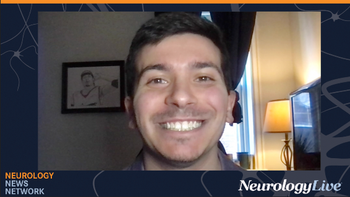
Neurology News Network for the week ending January 6, 2023. [WATCH TIME: 3 minutes]
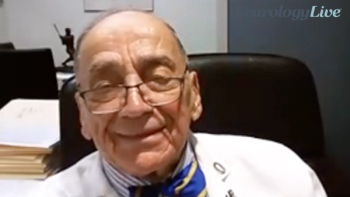
The director of the Ann Kimball and John W. Johnson Center for Cellular Therapeutics at Houston Methodist Hospital discussed the clinical manifestations of frontotemporal dementia (FTD) and how Coya Therapeutics is moving toward precision medicine with their FTD candidate, COYA 301. [WATCH TIME: 4 minutes]
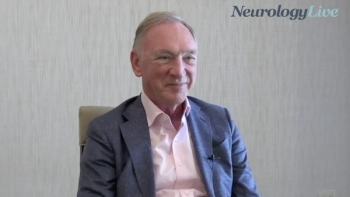
The professor of neurology at Cedars-Sinai Medical Center talked about efgartigimod as a novel treatment for chronic inflammatory demyelinating polyneuropathy, with the potential of it being a first-line treatment for patients with the condition. [WATCH TIME: 3 minutes]
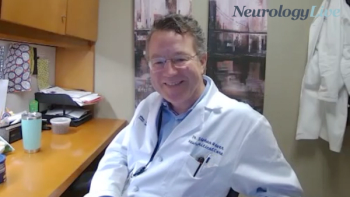
The director of neurocritical care and emergency neurology services at Westchester Medical Center Health System talked about a recently published paper that highlighted the need to address the disparity in quality metrics for stroke care, especially for intracerebral hemorrhage. [WATCH TIME: 4 minutes]

The vice president of the Rare Disease Translational Center at the Jackson Laboratory provided commentary on the next steps needed to further understand stathmin-2’s role as a potential disease-modifying biomarker. [WATCH TIME: 3 minutes]
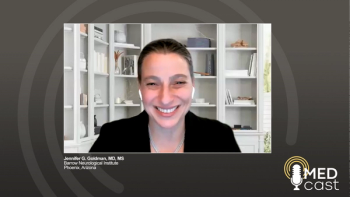
The expert neurologists discuss non-motor symptoms of Parkinson’s disease: types, their impact on patient’s quality of life, and current and emerging treatment options for non-motor symptoms.